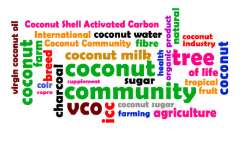Informative Inter Simple Sequence Repeat (ISSR) primers for genetic analysis of coconut (Cocos nucifera L.) germplasm
Abstract
Inter Simple Sequence Repeat (ISSR) markers are versatile and used in a number of applications viz. genetic diversity estimation, phylogenetic relationship and gene tagging in different crops. In coconut, the ISSR markers are being reported here for the first time. In the present paper, thirty-five primers targeting to amplify the inter microsatellite regions were screened using thirty different coconut germplasm accessions. The ISSR primers were evaluated based on polymorphism information content and marker index. Out of 35 primers screened, 19 primers produced clear amplification pattern. The polymorphism information content varied between 0.019 and 0.386, whereas, the marker index ranged from 0.019 to 5.673 among the primers. Based on the high marker index, five and ten primers were selected. The similarity matrices were constructed separately for five, ten and 19 primers using NYSYS software and the correlation was tested using Mantel’s test. There was high correlation between five and ten primers with 19 primers. Hence, the primers with higher marker index (5 and 10 primers) were regarded as informative primers. These informative primers can be used to develop more polymorphic markers in coconut for rapid screening of germplasm materials.
References
1997. Application of inter simple sequence
repeat (ISSR) markers to plant genetics.
Electrophoresis 18: 1524-1528.
Mantel, N. 1967. The detection of disease clustering and a generalized regression approach. Cancer Res. 27: 209-220.
Powell, W., Morgane, M., Andre, C., Hanafey, M., Vogel, J., Tingey, S.V. and Rafalski, A. 1996. The comparison of RFLP, RAPD, AFLP and SSR markers for germplasm analysis. Mol. Breed. 2: 225-
238.
Reddy, M.P., Sarla, N. and Siddiq, E.A. 2002.
Inter simple sequence repeat (ISSR) polymorphism and its application in plant breeding. Euphytica 128: 9-17.
Sankar, A.A. and G.A. Moore. 2001. Evaluation of inter simple sequence repeat analysis for mapping in citrus and extension of genetic linkage map. Theor. Appl. Genet.
102: 206-214.
Smith J.S.C., Chin, E.C.L., Shu, H., Smith, O.S., Wall, S.J., Senior, M.L., Mitchell, S., Kresovich, S.E. and Ziegle, J. 1997. An evaluation of SSR loci as molecular markers in maize (Zea mays L.): Comparison with data from RFLPs and pedigree. Theor. Appl. Genet. 95: 163-173.
Upadhyay, A., Parthasarathy, V.A., Seema, G. and Karun, A. 1999. An efficient method of DNA extraction from coconut. Agrotropica 11: 35-38.
Wang, G., Mahalingan, R. and Knap, H.T. 1998. (C-A) and (G-A) Anchored Simple Sequence Repeats (ASSR) generated polymorphism in soybean Glycine max (L.) Theor. Appl. Genet. 96: 1086-1096.
Zietkiewicz, E., Rafalski, A. and Labuda, D.
1994. Genome fingerprinting by simple sequence repeat (SSR) anchored polymerase chain reaction amplification. Genome 20: 176-183.











